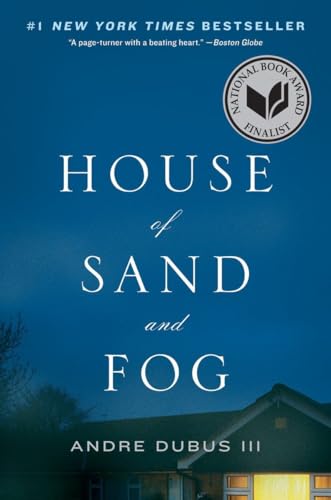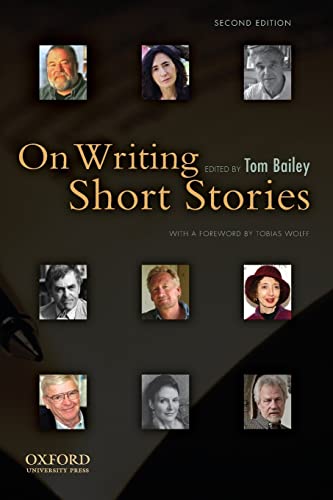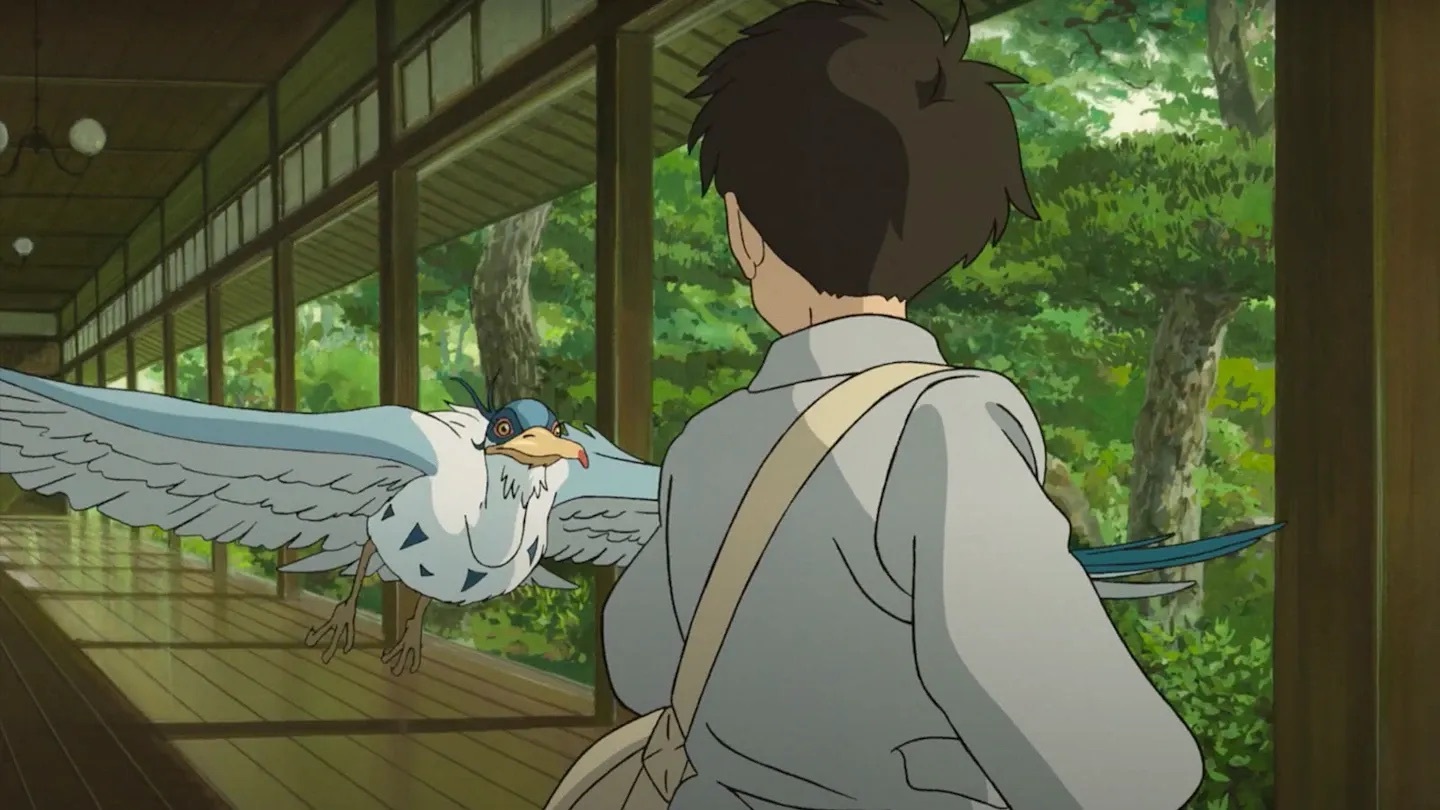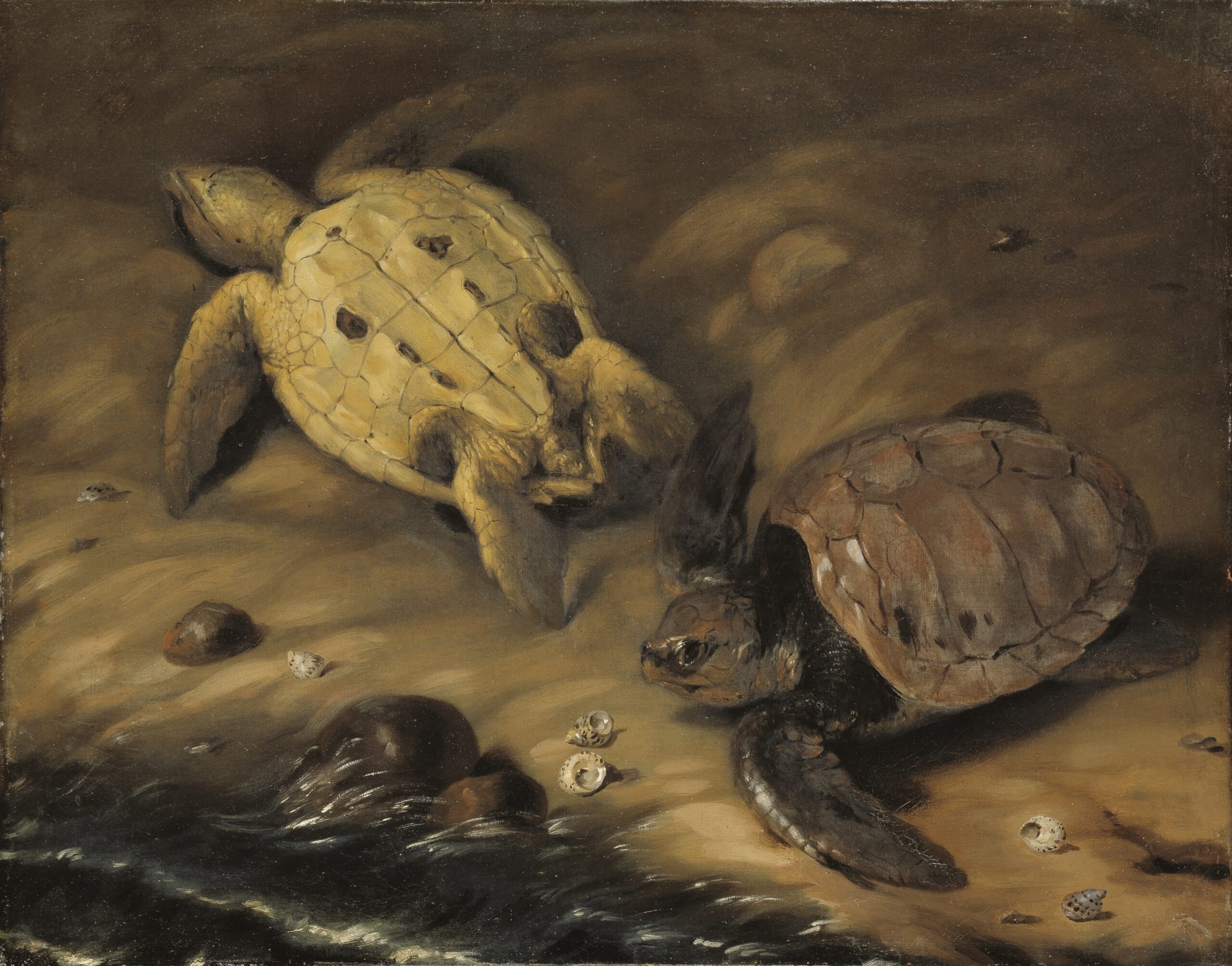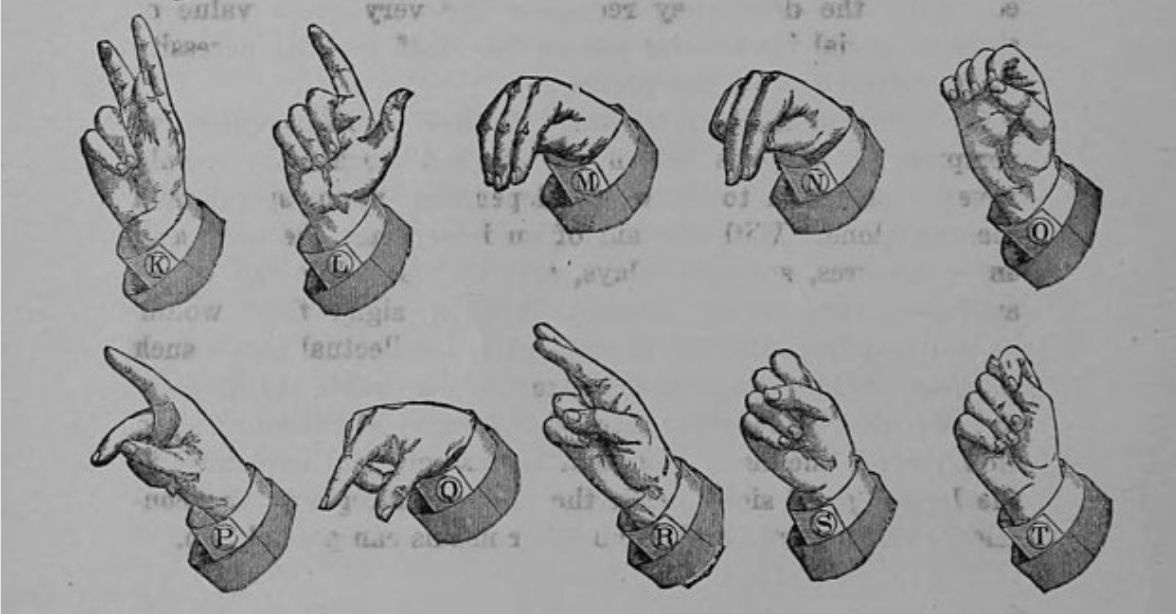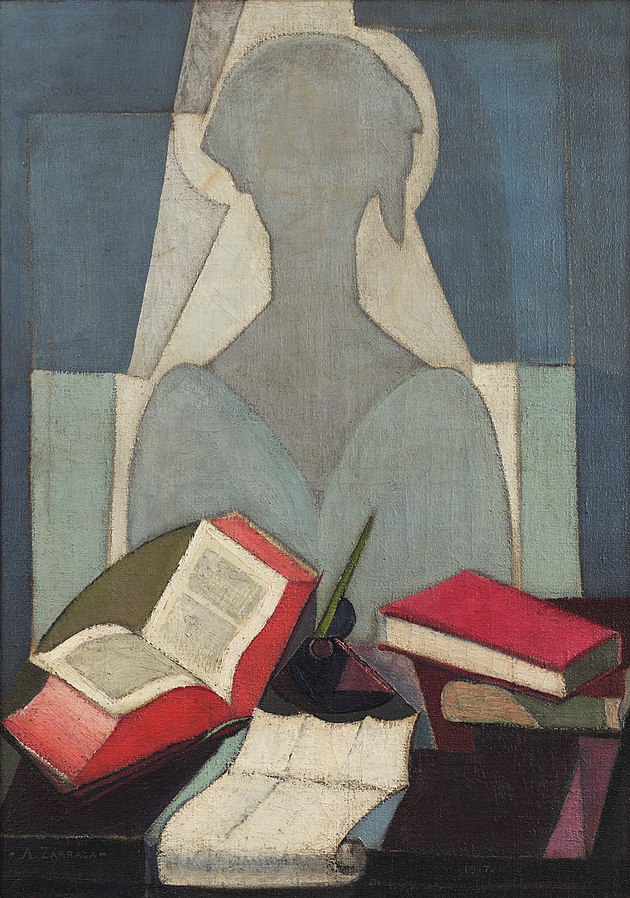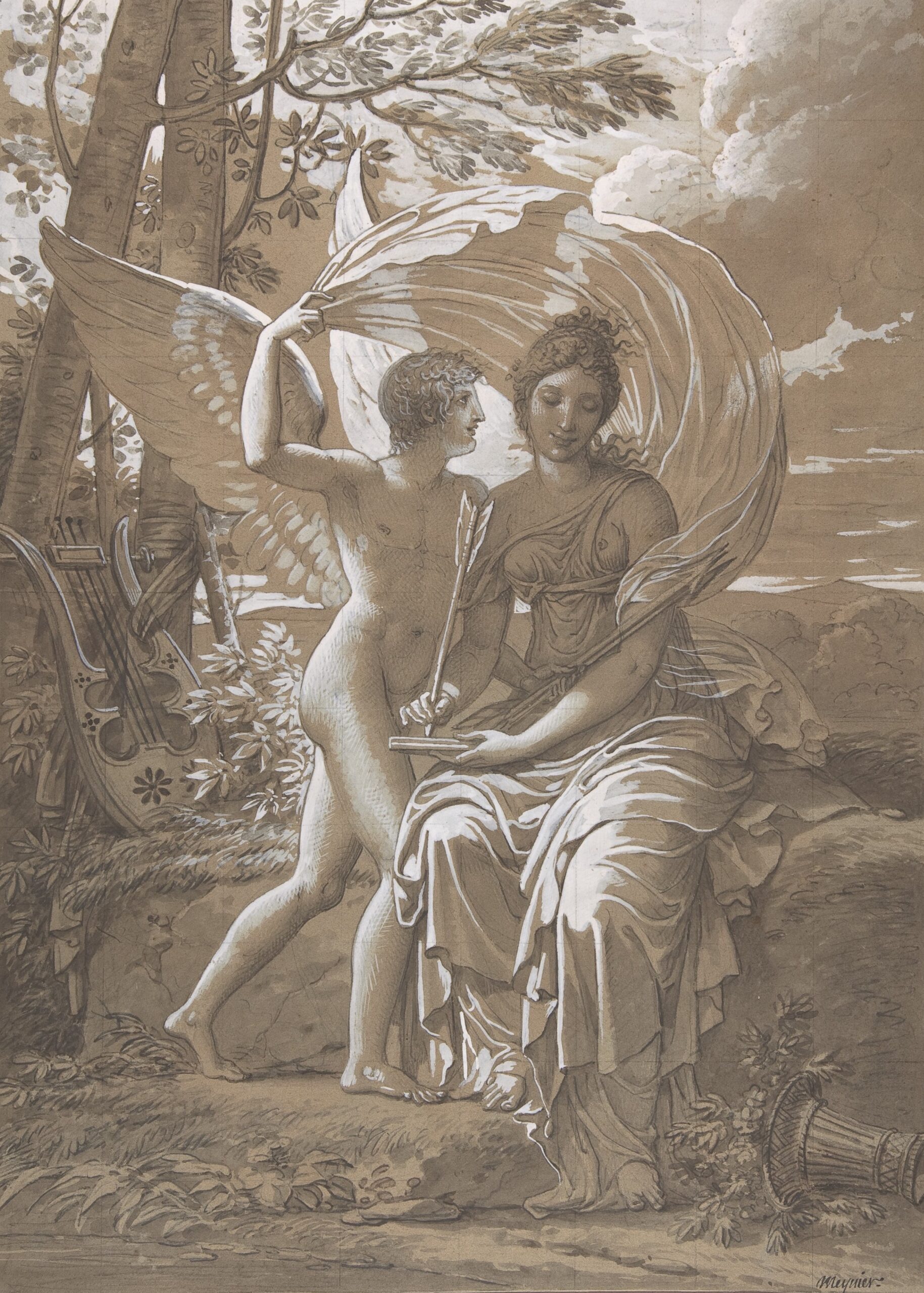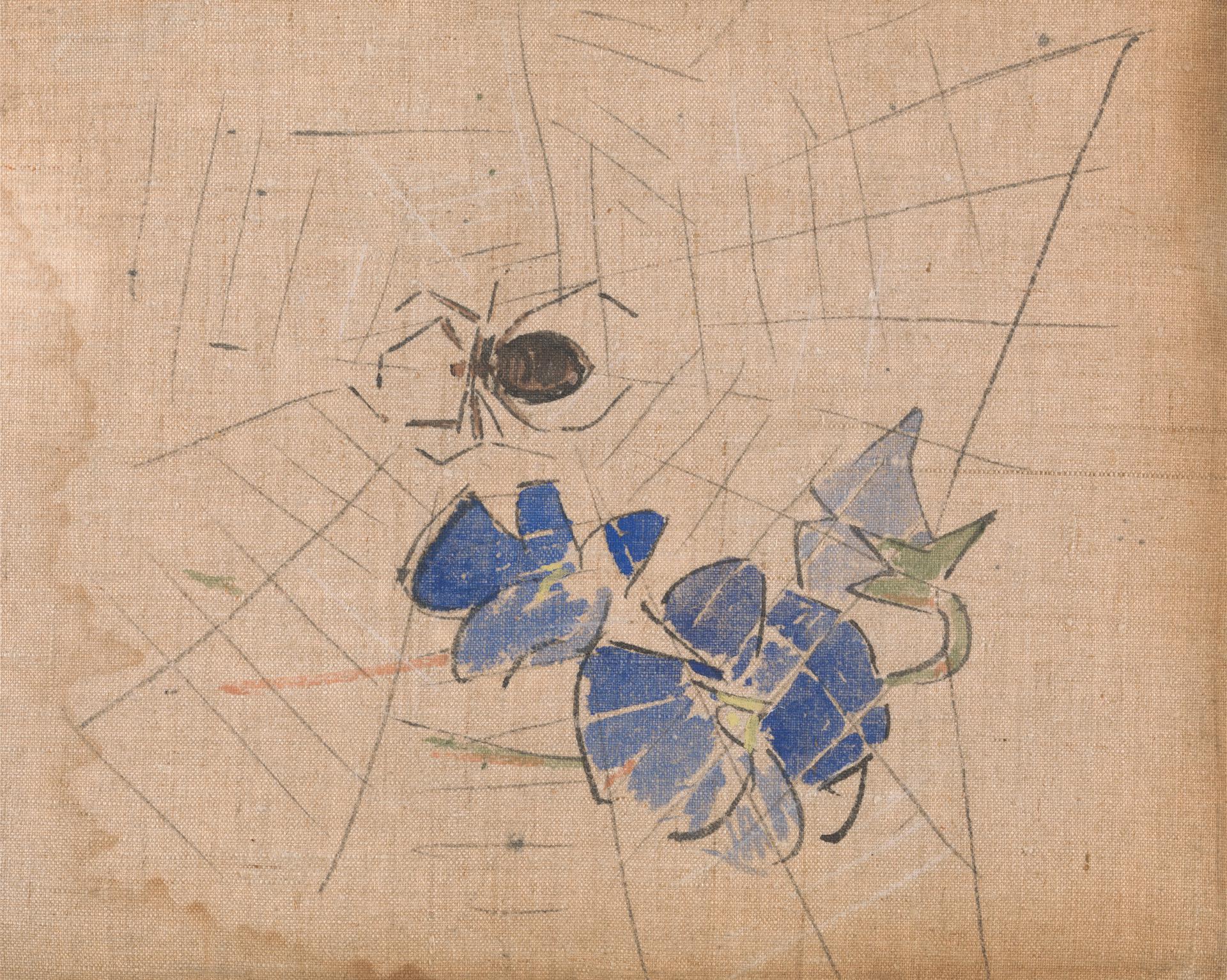1.
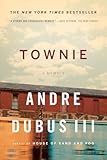
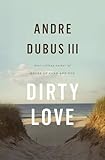
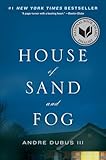 In the 1999 Publishers Weekly review of House of Sand and Fog, Andre Dubus III is compared to Russell Banks, Richard Ford, and “one of our most talented writers:” his father. Although reviews of Dubus III’s earlier books referenced his legendary namesake, the comparisons have begun to fade. At Kirkus, S. Kirk Walsh recently linked the men: both are “expert at exploring the psychological crevices of [their] characters and the gritty realism of their broken lives.” Walsh’s observations might soon become a critical antique. Each year distances father from son. The New York Times, The Washington Post, and The Boston Globe praised Dirty Love, Dubus III’s 2013 collection of fiction, without mentioning his skilled elder. The publication of his 2011 memoir, Townie, has resulted in literary-genealogical displacement for Dubus III: by writing directly about his relationship with his father, he has become his own man on the page. As the son rises, the memory of the father might drift away. That would be a shame. His father’s story has never been given its proper due.
In the 1999 Publishers Weekly review of House of Sand and Fog, Andre Dubus III is compared to Russell Banks, Richard Ford, and “one of our most talented writers:” his father. Although reviews of Dubus III’s earlier books referenced his legendary namesake, the comparisons have begun to fade. At Kirkus, S. Kirk Walsh recently linked the men: both are “expert at exploring the psychological crevices of [their] characters and the gritty realism of their broken lives.” Walsh’s observations might soon become a critical antique. Each year distances father from son. The New York Times, The Washington Post, and The Boston Globe praised Dirty Love, Dubus III’s 2013 collection of fiction, without mentioning his skilled elder. The publication of his 2011 memoir, Townie, has resulted in literary-genealogical displacement for Dubus III: by writing directly about his relationship with his father, he has become his own man on the page. As the son rises, the memory of the father might drift away. That would be a shame. His father’s story has never been given its proper due.
2.
I spent the summers during graduate school working as a groundskeeper for The Seeing Eye in Morristown, NJ, the world’s oldest existing guide dog school. I was a seasonal assistant, charged with helping keep the campus pristine for visits by rich donors. I set post-and-rail fences, pitchforked steaming mulch from the back of a dump truck, and weed-whacked rocky hills. I wore a painter’s suit to power-wash hair, urine, and feces caked into the grout of the kennels. Afterward, I stripped out of the black and gold spattered suit, and kneeled under the Gatorade cooler that sat on the bed of our pickup. I chugged the grainy, poorly mixed drink, kept cold by sloshing ice. I spread out in the grass and watched trainers lead blind students forward, golden retrievers leashed to hopeful hands. This was a place for people to gain independence by placing complete trust in others.
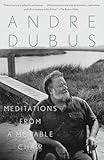
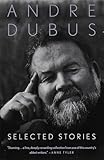 I had been introduced to the elder Dubus’s work as an undergraduate. Tom Bailey, my fiction professor at Susquehanna University, included an essay by Dubus in his book On Writing Short Stories. We read “The Fat Girl” and “The Winter Father” in class. I checked-out his Selected Stories and Meditations from a Movable Chair from the college library. Though it felt like a venial sin, I couldn’t help but underline passages in pencil. But I truly fell in love with Dubus’s writing during those hot afternoons in Morristown, especially when it was my turn to mow the wide fields that stretched to the treeline. I rode a Steiner tractor, one used to trim minor-league ballfields, and listened to Bad Company while cutting rows of light and dark. In the middle of the field, on breaks, I unstrapped my backpack from the seat and read Dubus. I often returned to his essay, “Digging.” At 17, weighing “one hundred and five pounds,” Dubus was sent to work by his “ruddy, broad-chested father.” Dubus didn’t want to go. His father, an ex-Marine who carried a .22 on his belt for cottonmouths encountered during his surveying work, had a message for the foreman: “make a man of him.”
I had been introduced to the elder Dubus’s work as an undergraduate. Tom Bailey, my fiction professor at Susquehanna University, included an essay by Dubus in his book On Writing Short Stories. We read “The Fat Girl” and “The Winter Father” in class. I checked-out his Selected Stories and Meditations from a Movable Chair from the college library. Though it felt like a venial sin, I couldn’t help but underline passages in pencil. But I truly fell in love with Dubus’s writing during those hot afternoons in Morristown, especially when it was my turn to mow the wide fields that stretched to the treeline. I rode a Steiner tractor, one used to trim minor-league ballfields, and listened to Bad Company while cutting rows of light and dark. In the middle of the field, on breaks, I unstrapped my backpack from the seat and read Dubus. I often returned to his essay, “Digging.” At 17, weighing “one hundred and five pounds,” Dubus was sent to work by his “ruddy, broad-chested father.” Dubus didn’t want to go. His father, an ex-Marine who carried a .22 on his belt for cottonmouths encountered during his surveying work, had a message for the foreman: “make a man of him.”
Dubus describes pickaxing a trench in Lafayette., La. heat. Sunburned and weak, his mouth is dry. He swallows salt tablets “and drank and drank,” but later becomes sick and vomits. He does not tell the foreman; he does not want to tell his father. But his father learns, and takes young Dubus to lunch. He buys the boy a pith helmet for the sun. Dubus feels like a fool, but wore it all summer because “I did not want to hurt him.” He ends the essay by thanking his father for making him work “instead of taking me home to my mother and sister,” where it was comfortable, the air cooled by a fan.
Dubus knows his father “may have wanted to take me home. But he knew he must not, and he came tenderly to me.” He made his son a man by letting him know that weakness could be overcome. My own father is similarly muscled from his college football days, but carries a gentler side. He was more pleased about my free lunch at work: chicken stuffed with apples and cheddar cheese, sweet potatoes, and freshly baked cornbread, squared and buttered. I sat at the long cafeteria tables with my boots unlaced, joking with the other summer guys. The outside work was tough, but inside there were strawberry-printed tablecloths and shiny urns of coffee. Reading Dubus was like entering a rougher world of work, and a place where the love between father and son could be expressed in silence.
In contrast, Dubus’s fiction scratches and tears. His stories document the sexual and violent collisions between men and women. Manipulation, jealousy, and revenge: these fictive men are often terrible. They are shadows of the male archetypes chiseled by his similarly Catholic predecessor, Ernest Hemingway. Ray, the occasional first person narrator of “The Pretty Girl,” rapes his ex-wife, Polly. When the narrative leans toward her, Dubus trades first person for third person limited. She realizes that men “need mischief and will even pretend a twelve-ounce can of beer is wicked if that will make them feel collusive while drinking it.” Polly’s Catholic faith is her salve. She attends Mass weekly, but “did not receive communion because she had not been in the state of grace for a long time.” She had slept with another man during the final months of her marriage, and will not even seek the sacrament of confession; the preconciliar world of sexual sin hangs heavy. Dubus’s fiction sounds a warning: sins bring immediate and eternal consequences, especially when the transgressions are sweet.
3.
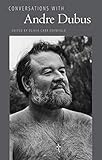
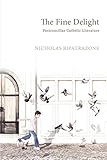 I devoted a chapter in The Fine Delight, my book on contemporary Catholic literature, to the fiction and non-fiction of Dubus. As novelist and deacon Ron Hansen describes himself, Dubus was a “Vatican-II Catholic;” often critical of the institutional church’s hierarchy, but thoroughly Catholic. To read him otherwise is to ignore his moral and cultural center.
I devoted a chapter in The Fine Delight, my book on contemporary Catholic literature, to the fiction and non-fiction of Dubus. As novelist and deacon Ron Hansen describes himself, Dubus was a “Vatican-II Catholic;” often critical of the institutional church’s hierarchy, but thoroughly Catholic. To read him otherwise is to ignore his moral and cultural center.
I quickly discovered that scholarship on Dubus is surprisingly scarce. Shorter examinations peaked in the 1980s and ’90s. Revue Delta, a French publication, released a special critical issue on Dubus in 1987. Xavier Review’s Fall 2010 issue is composed of essays on both Dubuses. His interviews have been collected twice; first in Leap of the Heart: Andre Dubus Talking (2003), and more recently in Conversations with Andre Dubus (2013), which spans interviews from 1967 to 1999. In “The Art of Reading Andre Dubus: We Don’t Have to Live Great Lives” from Poets & Writers, Joshua Bodwell documents the accolades collected during Dubus’s lifetime: “fellowships from the Guggenheim and MacArthur Foundations, as well as the PEN/Malamud Award, the Rea Award for the Short Story, the Jean Stein Award from the American Academy of Arts and Letters, and [was a finalist] for a National Book Critics Circle Award and [a runner-up for] a Pulitzer Prize.”
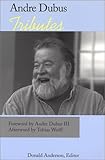 There is no shortage of appreciations from his contemporaries and students: Andre Dubus: Tributes (2001) includes a foreword from his son, and an afterword by Tobias Wolff. The appreciations extend to those who learned from reading his work. Here at The Millions, Sara Krasikov writes about “Reading Andre Dubus in Iowa:” his writing offers “a spiritual inquiry into being human that’s free of sanctimony.” At The Missouri Review blog, Michael Nye reflects on how Dubus is one of his writing “guides,” as well as one of his “foils:” “I now admire Dubus’s work rather than try to emulate it.” Dubus has also reached the screen. In 2009, Edward J. Delaney released a documentary, The Times Were Never So Bad: The Life of Andre Dubus. His story “Killings” was adapted into In the Bedroom (2001), and his novellas We Don’t Live Here Anymore and Adultery became We Don’t Live Here Anymore (2004). The Harry Ransom Center at the University of Texas at Austin acquired Dubus’s collected papers in 2010. Included: 300 letters from Dubus to his mother that span 20 years, other personal and professional correspondence, logs of writing time, character sketches and story fragments and drafts, lecture notes, publication typescripts and galleys, novenas, pocket calendars, divorce papers, and more.
There is no shortage of appreciations from his contemporaries and students: Andre Dubus: Tributes (2001) includes a foreword from his son, and an afterword by Tobias Wolff. The appreciations extend to those who learned from reading his work. Here at The Millions, Sara Krasikov writes about “Reading Andre Dubus in Iowa:” his writing offers “a spiritual inquiry into being human that’s free of sanctimony.” At The Missouri Review blog, Michael Nye reflects on how Dubus is one of his writing “guides,” as well as one of his “foils:” “I now admire Dubus’s work rather than try to emulate it.” Dubus has also reached the screen. In 2009, Edward J. Delaney released a documentary, The Times Were Never So Bad: The Life of Andre Dubus. His story “Killings” was adapted into In the Bedroom (2001), and his novellas We Don’t Live Here Anymore and Adultery became We Don’t Live Here Anymore (2004). The Harry Ransom Center at the University of Texas at Austin acquired Dubus’s collected papers in 2010. Included: 300 letters from Dubus to his mother that span 20 years, other personal and professional correspondence, logs of writing time, character sketches and story fragments and drafts, lecture notes, publication typescripts and galleys, novenas, pocket calendars, divorce papers, and more.
It would be incorrect to say that Dubus has exited the literary conversation, but there is one telling fact: Thomas Kennedy’s excellent book, Andre Dubus: A Study of the Short Fiction, published in 1988, remains the only full-length critical examination of Dubus’s work. He first met Dubus at a Vermont bar in 1984. Kennedy had just been paid $20 for his first published story, and asked Dubus if he wanted to help him drink away the double sawbuck. He soon realized that Dubus was the writer of a story that helped him “understand the difference between love and lust:” “If They Knew Yvonne.” Dubus, who explained in his essay “The Habit of Writing” that he would read story drafts into a tape recorder and then play them back during revision, mailed Kennedy five cassette tapes’ worth of thoughts on fiction and life. Kennedy used those recordings as the basis for his critical study.
To be certain, critical attention toward a writer is not the last word on one’s success or influence, but the dearth of criticism is inversely related to the plethora of appreciations. Dubus was out of place in his literary moment. His only novel, The Lieutenant, was published in 1967, the same year that John Barth read “The Literature of Exhaustion” at the University of Virginia, where he praised the aesthetics of Jorge Luis Borges. In contrast, Dubus “gave up” on reading William Gass, and had this to say about postmodernism: “It’s like raw oysters and fried brains; you can’t call a man an asshole for not liking it.” Kennedy explains the ideological rift: Dubus “thought of his characters as real people in a real world rather than fictional characters in a fictional world,” as in the work of Barth, George Saunders, and Robert Coover. Dubus even differs from John Cheever and Gordon Weaver, whose characters “exist in language.”
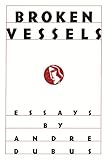 The two elements of Dubus’s work and life that stifle most critics are his form and function; short fiction and Catholicism, respectively. The Jesuit literary critic Patrick Samway knows how to deal with those topics, as did Vivian Gornick, whose 1990 essay “Tenderhearted Men: Lonesome, Sad and Blue” remains one of the best treatments of Dubus. When she writes that his “work describes with transparency a condition of life it seems, almost self-consciously, to resist making sense of,” she recognizes the almost rubber tendency of Dubus’s fiction. His characters are trapped in worlds timed by their immediate needs: “they drink, they smoke, they make love: without a stop.” Because “sexual love is entirely instrumental,” relationships fail again and again. Marriage falls into adultery, adultery into loneliness, and then the cycle repeats. His characters “remain devoted to the fantasy.” Gornick’s essay considers Dubus after examining Raymond Carver and Richard Ford, and she concludes that Dubus’s Catholicism helps create the most layered fiction: “damnation mesmerizes him.” For Carver and Ford, there is only the “hard-boiled self-protection” of men. Dubus shares Flannery O’Connor’s fear of God. His characters still sin, but they look over their shoulders, they go to confession, they weep for their souls. Jonathan Mahler’s otherwise sharp essay, “The Transformation of Andre Dubus,” falters on his Catholicism, wondering if his devotional moments in essays “can be alienating” to the “secular reader.” In his introduction to Dubus’s essay collection, Broken Vessels, fellow Catholic Tobias Wolff explains: “[For Dubus], the quotidian and the spiritual don’t exist on different planes, but infuse each other. His is an unapologetically sacramental vision of life in which ordinary things participate in the miraculous, the miraculous in ordinary things. He believes in God, and talks to Him, and doesn’t mince words.” This belief operated in the real, tangible world, where the sacred and profane coexist, as in the story “Sorrowful Mysteries,” where the main character’s girlfriend is introduced in such a manner: “She likes dancing, rhythm and blues, jazz, gin, beer, Pall Malls, peppery food, and passionate kissing, with no fondling. She receives Communion every morning, wears a gold Sacred Heart medal on a gold chain around her neck.” In his essays, Dubus explains that sacraments “soothe our passage” through life. His daily receipt of the Eucharist means “the taste of forgiveness and of love that affirmed, perhaps celebrated, my being alive, my being mortal.” God needed to be brought down to the real, dirty world. Without the “touch” of the Eucharist, “God is a monologue, an idea, a philosophy; he must touch and be touched, the tongue on flesh.”
The two elements of Dubus’s work and life that stifle most critics are his form and function; short fiction and Catholicism, respectively. The Jesuit literary critic Patrick Samway knows how to deal with those topics, as did Vivian Gornick, whose 1990 essay “Tenderhearted Men: Lonesome, Sad and Blue” remains one of the best treatments of Dubus. When she writes that his “work describes with transparency a condition of life it seems, almost self-consciously, to resist making sense of,” she recognizes the almost rubber tendency of Dubus’s fiction. His characters are trapped in worlds timed by their immediate needs: “they drink, they smoke, they make love: without a stop.” Because “sexual love is entirely instrumental,” relationships fail again and again. Marriage falls into adultery, adultery into loneliness, and then the cycle repeats. His characters “remain devoted to the fantasy.” Gornick’s essay considers Dubus after examining Raymond Carver and Richard Ford, and she concludes that Dubus’s Catholicism helps create the most layered fiction: “damnation mesmerizes him.” For Carver and Ford, there is only the “hard-boiled self-protection” of men. Dubus shares Flannery O’Connor’s fear of God. His characters still sin, but they look over their shoulders, they go to confession, they weep for their souls. Jonathan Mahler’s otherwise sharp essay, “The Transformation of Andre Dubus,” falters on his Catholicism, wondering if his devotional moments in essays “can be alienating” to the “secular reader.” In his introduction to Dubus’s essay collection, Broken Vessels, fellow Catholic Tobias Wolff explains: “[For Dubus], the quotidian and the spiritual don’t exist on different planes, but infuse each other. His is an unapologetically sacramental vision of life in which ordinary things participate in the miraculous, the miraculous in ordinary things. He believes in God, and talks to Him, and doesn’t mince words.” This belief operated in the real, tangible world, where the sacred and profane coexist, as in the story “Sorrowful Mysteries,” where the main character’s girlfriend is introduced in such a manner: “She likes dancing, rhythm and blues, jazz, gin, beer, Pall Malls, peppery food, and passionate kissing, with no fondling. She receives Communion every morning, wears a gold Sacred Heart medal on a gold chain around her neck.” In his essays, Dubus explains that sacraments “soothe our passage” through life. His daily receipt of the Eucharist means “the taste of forgiveness and of love that affirmed, perhaps celebrated, my being alive, my being mortal.” God needed to be brought down to the real, dirty world. Without the “touch” of the Eucharist, “God is a monologue, an idea, a philosophy; he must touch and be touched, the tongue on flesh.”
The critical ink might have dried, but for working writers, Dubus remains a life so full, so large, and yet incomplete. At the 2013 AWP Conference in Boston, “The Literary Legacy of Andre Dubus” drew an appreciative crowd. Matthew Batt, who served on the panel along with Dubus III, Melanie Rae Thon, Bruce Machart, and Nancy Zafris, remembers the room being full of “radiance.” Even the audience “seemed to have been waiting ardently for an occasion to mourn, and testify, and, ultimately to celebrate Dubus and his legacy.” Such a gathering is an act of love, and love is Dubus’s locus. Batt considers that Dubus’s work “is a kind of litany of sorrow and hope, where we all know we don’t stand a chance in the long run, but that’s no reason not to love one another along the way.” Love makes for fiction that is sharp to the touch. We leave Dubus wounded, but fuller.
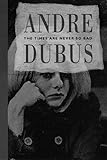 I recently sat with fiction writer Kevin Grauke in his office at LaSalle University, and looking at well-worn spines of Dubus’s books, we wondered why this master does not receive more critical appreciation. Grauke’s best guess is that Dubus’s fiction is “very exposition-heavy and dialogue-light…they read like core samples pulled from the depths of his protagonists.” “A Father’s Story” (pdf) is his favorite work: “its ending jars me loose from the world around me.” Published in the Spring 1983 issue of Black Warrior Review, collected in The Times Are Never So Bad (1983) and subsequently anthologized to the present, the story of Luke Ripley unfurls in methodical first person. Ripley is divorced, owns and boards horses, and tells the reader about his daily Catholic rituals for the first half of the story. This telling would lumber forward in the hands of lesser writers, but Dubus makes the prose confessional, and we later learn the reason Ripley needs forgiveness. His grown daughter, Jennifer, spent a night drinking with friends. She struck a man while driving home, and weeps to her father in the early morning. He drives his pickup to the scene and voices simultaneous prayers: that the man was alive, and, “if he were dead, they would not get Jennifer.” The man is dead, and Ripley chooses his daughter over morality, over even God. He disposes of the body, and this is what he tells God: “I would do it again. For when she knocked on my door, then called me, she woke what had flowed dormant in my blood since her birth, so that what rose from the bed was not a stable owner or a Catholic or any other Luke Ripley I had lived with for a long time, but the father of a girl.”
I recently sat with fiction writer Kevin Grauke in his office at LaSalle University, and looking at well-worn spines of Dubus’s books, we wondered why this master does not receive more critical appreciation. Grauke’s best guess is that Dubus’s fiction is “very exposition-heavy and dialogue-light…they read like core samples pulled from the depths of his protagonists.” “A Father’s Story” (pdf) is his favorite work: “its ending jars me loose from the world around me.” Published in the Spring 1983 issue of Black Warrior Review, collected in The Times Are Never So Bad (1983) and subsequently anthologized to the present, the story of Luke Ripley unfurls in methodical first person. Ripley is divorced, owns and boards horses, and tells the reader about his daily Catholic rituals for the first half of the story. This telling would lumber forward in the hands of lesser writers, but Dubus makes the prose confessional, and we later learn the reason Ripley needs forgiveness. His grown daughter, Jennifer, spent a night drinking with friends. She struck a man while driving home, and weeps to her father in the early morning. He drives his pickup to the scene and voices simultaneous prayers: that the man was alive, and, “if he were dead, they would not get Jennifer.” The man is dead, and Ripley chooses his daughter over morality, over even God. He disposes of the body, and this is what he tells God: “I would do it again. For when she knocked on my door, then called me, she woke what had flowed dormant in my blood since her birth, so that what rose from the bed was not a stable owner or a Catholic or any other Luke Ripley I had lived with for a long time, but the father of a girl.”
Thomas Kennedy notes that the spiritual evolution of Dubus’s characters “might be seen as a growth to this ‘weakness’ [of love], to the openness of heart that, in weighing love against principle, chooses the former, although without releasing the latter.” This is the “moral paradox of the contemporary Catholic portrayed by Dubus, the encompassment into a single tension of the heart of the law of the Old Testament and the love of the New.” “A Father’s Story” is often misread. As the father of twin daughters, I fully understand Luke Ripley’s decision. Dubus recognizes that sometimes we must act poorly, immorally, in order to love. I cannot think of another writer who forces me to question God.
4.
John Irving, Kurt Vonnegut, Ann Beattie, Stephen King, Tim O’Brien, John Updike, Gail Godwin, Richard Yates, Jayne Anne Phillips, and E.L. Doctorow: a dream reading series. It happened on a sequence of Sundays in February and March 1987, at the Charles Hotel in Harvard Square. The readings were followed by dinners: fundraising events for “a little-known writer of short stories who was struck by a car,” as described in AP coverage of the event. That little-known writer was Andre Dubus.
On July 23, 1986, on Route 93 in Massachusetts, a selfless act left Dubus paralyzed. From his essay “Lights of the Long Night:” “I do not remember leaving the ground my two legs stood on for the last instant in my life, then moving through the air, over the car’s hood and windshield and roof, and falling on its trunk.”
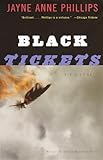 I spoke with the final reader in that series, Jayne Anne Phillips. She was my mentor; first from afar in Black Tickets — I would type “Stars” and “Sweethearts” until I understood her forward-leaning structure, how her stories always moved yet swirled — and later in the Rutgers-Newark MFA program. I asked her why she thought Dubus, who is so loved by practitioners of his craft, was not given his critical due: “So many writers are little known, or lost for a time, once they stop publishing. Someone needs to come along and ‘discover’ them, as Dawn Powell and Edith Pearlman were ‘discovered.’ Films help, but [Todd] Field could not have titled In The Bedroom by the title of Andre’s story (the title works so beautifully in the fiction), so only writers of a certain age even know, at this point, that the film is based on Andre’s story. And I do think ‘working class’ fiction is neglected, when there should be courses based on it. Andre’s books are in print. Those who can need to assign them for courses. As for literary radar, some of it is politics and (urban) connections, as in any other realm. But none of this can touch the work itself.”
I spoke with the final reader in that series, Jayne Anne Phillips. She was my mentor; first from afar in Black Tickets — I would type “Stars” and “Sweethearts” until I understood her forward-leaning structure, how her stories always moved yet swirled — and later in the Rutgers-Newark MFA program. I asked her why she thought Dubus, who is so loved by practitioners of his craft, was not given his critical due: “So many writers are little known, or lost for a time, once they stop publishing. Someone needs to come along and ‘discover’ them, as Dawn Powell and Edith Pearlman were ‘discovered.’ Films help, but [Todd] Field could not have titled In The Bedroom by the title of Andre’s story (the title works so beautifully in the fiction), so only writers of a certain age even know, at this point, that the film is based on Andre’s story. And I do think ‘working class’ fiction is neglected, when there should be courses based on it. Andre’s books are in print. Those who can need to assign them for courses. As for literary radar, some of it is politics and (urban) connections, as in any other realm. But none of this can touch the work itself.”
On the man himself: “I actually can’t remember meeting Andre until after the accident, though I had been reading his stories for years. Andre was a battler, an ex-Marine, a man’s man (with all the good and bad the term implies). It was typical of him to stop on a snowy night in the dark to help, to respond to emergency. A car crash had just happened; Andre was in the road assisting one of the victims, a woman, when another driver, unable to stop, hit him. Andre told me he threw the woman out of the way; he saved her life, basically, and took the brunt of the impact. He never fully recovered, and faced years of medical struggle. At the time, I lived near Boston, and the news of the accident compelled all of us to try to help in the only way we really could. Andre grew up working class Catholic; he’d begun teaching after he started publishing but must have been between jobs, or he wasn’t permanently associated with a university that had decent medical insurance. Andre taught me never to talk to someone in a wheelchair from a standing position; it’s just ‘normal human civility,’ he told me, to kneel and be at their eye level. I knelt. ‘That’s better,’ he said. He was generous, he was a charmer, and he was hard on himself and everyone around him. One of his most beautiful books is Broken Vessels, in which he addresses the sudden transformation from able-bodied, confident, muscular brawler (in his past) to ‘broken’ physicality, in which the soul must shift to compensate for strength that won’t return. Andre was years into that process when he died. No battle is harder won.”
Her words bring me to Thon’s reflection in Boston: Dubus “spent his life as a writer and a man kneeling before the suffering of others, receiving pain as a gift, surrendering to the dark wonder of the imagination, daring to ask the most devastating questions.” Love will bring a man to his knees. What ultimately draws me to Dubus is a fear of myself. It is a fear that has no justification in my history: I have managed to avoid violence, certainly any coming from my own hands. But Dubus’s fiction taps into the preternatural worry that we can turn, in a moment, from a person we have prayed to become to something sharp and wrong. To read Dubus is to be possessed by art.
5.
Early in Townie, Dubus III’s memoir, his father is represented as a legend. When father and son go for a run, Dubus is “waiting for me at the top [of the hill], running in place, his beard glistening in the dappled light.”
I never met Dubus. He died in 1999, when I was a senior in high school, and had not yet read a word of his work. That iconic snapshot of him at the top of the hill encapsulates my view of him, however skewed. We all remake our icons in our own images, and I have done the same to Andre Dubus. I feel younger than my years expressing such affinity, but it is also freeing to admit that he informs nearly each word I type. I return to “The Habit of Writing” often.
“I gestate: for months, often for years,” he begins. He writes ideas in notebooks, and never thinks about them, knowing “I will kill the story by controlling it; I work to surrender.” He waits. The story “is growing in me.” And then the scenes are showed to him, and the “story is ready for me to receive it. Then I must write, with the most intense concentration I can muster.” That is writing. The humility needed to wait, and the confidence required to finally act. The romantic, inspired moments of fiction writing are corralled by the need for communication and control on the page. One cannot live without the other.
While reading Townie, I cringed when Dubus left his wife and four children for the affections of a college student. I had known about the separation, but I had revised Dubus in my mind. Dubus III was not yet a teenager. The fractured family moved often; Dubus III’s prose still rings with the pain from a missing father. The Wall Street Journal’s review of the memoir pulls no punches: “Dubus comes off as a pathological narcissist oblivious to the travails that threatened to devour his children.” Dubus III, in an interview with The New Yorker, responds: “I have to say, I’m a little haunted by how hard on my father some of the Townie reviews have been. Could he have done better? Yeah. But I’ve forgiven him.” Dubus and his characters pulse with the struggle of living in a Catholic worldview that condemns sin but not the sinner. The paradox makes for incredible writing, but in life the sins wound longer than the close of a book. Dubus’s son has forgiven him; my hope is that we will never forget him.
Image Credit: Wikipedia






